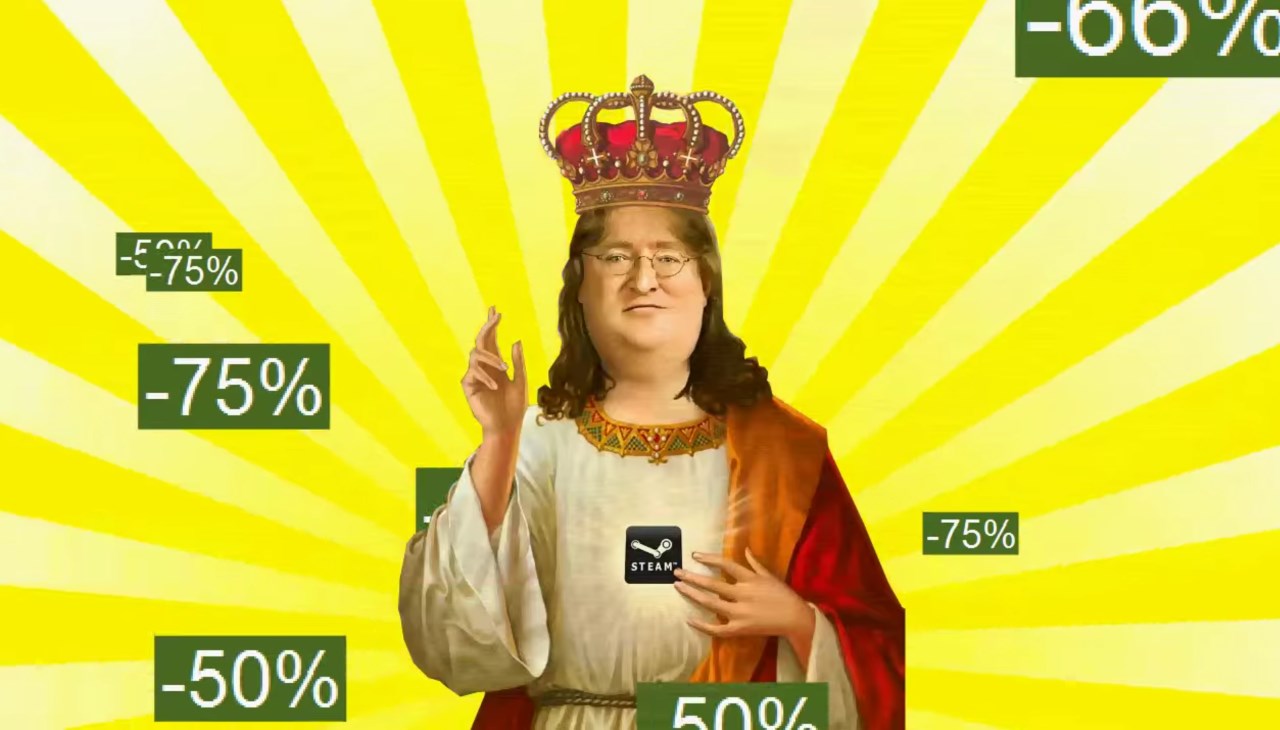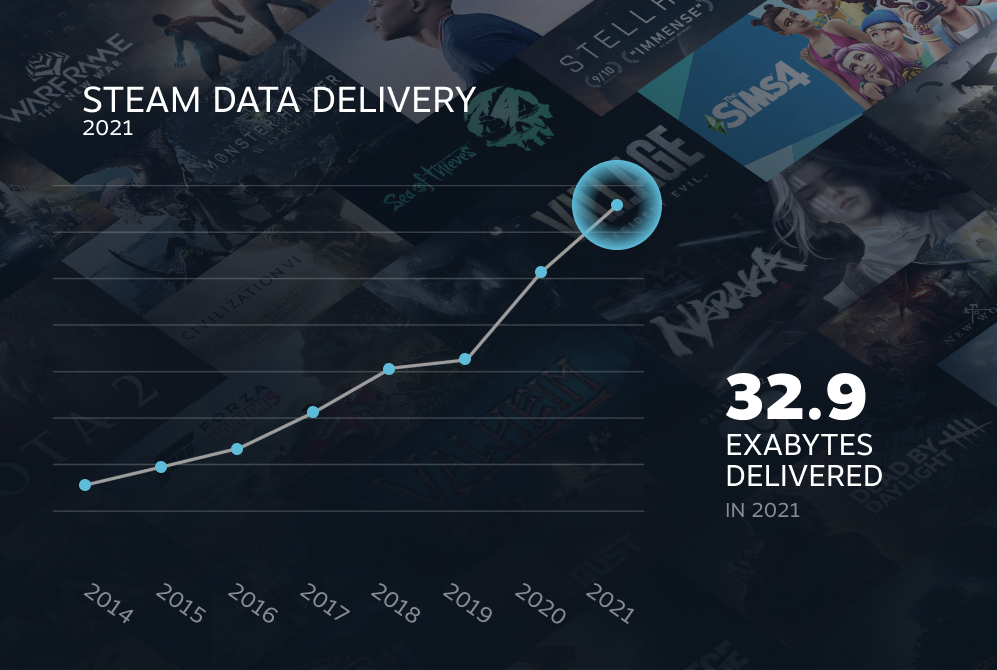Steam had 69 million daily users in 2021
Delivered the equivalent of 100GB of gaming goodness to every adult in the United States.

Valve has published the Steam Year in Review 2021—yes, in March 2022. It's good to experience a bit of Valve time again, don't you think?
The Year in Review is a mix of customer-facing stats and shop talk for developers using the platform. The headline numbers this year are as impressive as they've ever been, even in the context of 2020's unprecedented growth: 69 million daily active players (nice), making up 132 million unique monthly users, with the highest concurrent player count at any one point being 27.4 million people.
Players spent just under 38 billion hours on Steam in 2021, a 21% increase over 2020, and Valve points out this adds up to a whopping 4.3 million years of playtime. Later in the post Valve goes into some detail on back-end infrastructure improvements, and provides a graph showing it provided 33 exabytes of content to Steam users. I didn't know what an exabyte was either but Valve's got us covered: "It’s pretty hard to grasp a number that big, but just for fun: 33 exabytes is about how much data you’d use if the 330 million people in the United States all downloaded a 100GB game."
The growth is pretty much across-the-board, with player spending also rising by 27% (though Valve does not put a dollar amount on this), and the platform-holder keen to point out that 2.6 million players made their first purchase each month in 2021.
Other minor stats: new VR users grew by 11%, while the newest hardware release, the Oculus Quest 2, now makes up more than a third of Steam VR headsets. 48 million controllers are used by Steam players, making up just over 10% of daily play sessions. A third of top releases on the platform were from developers shipping on Steam for the first time, and Chinese developers in particular have benefited: Valve says this group has seen "a 300% growth in sales from non-Chinese markets in the past year alone."
Remote Play is also proving popular, and particularly the ability to share local multiplayer games (even for games that don't have online support)—shared gameplay now makes up 34% of all remote play sessions.

So: Steam is bigger than ever. If you go by the daily active users of 69 million, that's more people than live in the United Kingdom. And Gabe is a lot cooler than the Queen. As with the exabytes, it can be hard to wrap your brain around the scale of the platform.
The biggest gaming news, reviews and hardware deals
Keep up to date with the most important stories and the best deals, as picked by the PC Gamer team.
That scale, of course, has led to things that may have once been unthinkable. Valve's post takes the time to celebrate the arrival of "beloved formerly-console-exclusive games from our friends at Sony and Microsoft." The tone is just about right here but it's hard to shake the sense that this is one of the ultimate PC gaming companies saying see, we told you!
"There are no bad years to be a PC gamer, but 2021 was an especially good one. From Days Gone to Forza Horizon 5, players on PC got to enjoy an incredible lineup from some of the best first-party console studios on the planet. That explosion of fresh content is a testament to the open, competitive nature of the PC ecosystem, where players have the broadest choice of what hardware to play on, what stores and services to use, and which games to play."

Rich is a games journalist with 15 years' experience, beginning his career on Edge magazine before working for a wide range of outlets, including Ars Technica, Eurogamer, GamesRadar+, Gamespot, the Guardian, IGN, the New Statesman, Polygon, and Vice. He was the editor of Kotaku UK, the UK arm of Kotaku, for three years before joining PC Gamer. He is the author of a Brief History of Video Games, a full history of the medium, which the Midwest Book Review described as "[a] must-read for serious minded game historians and curious video game connoisseurs alike."

